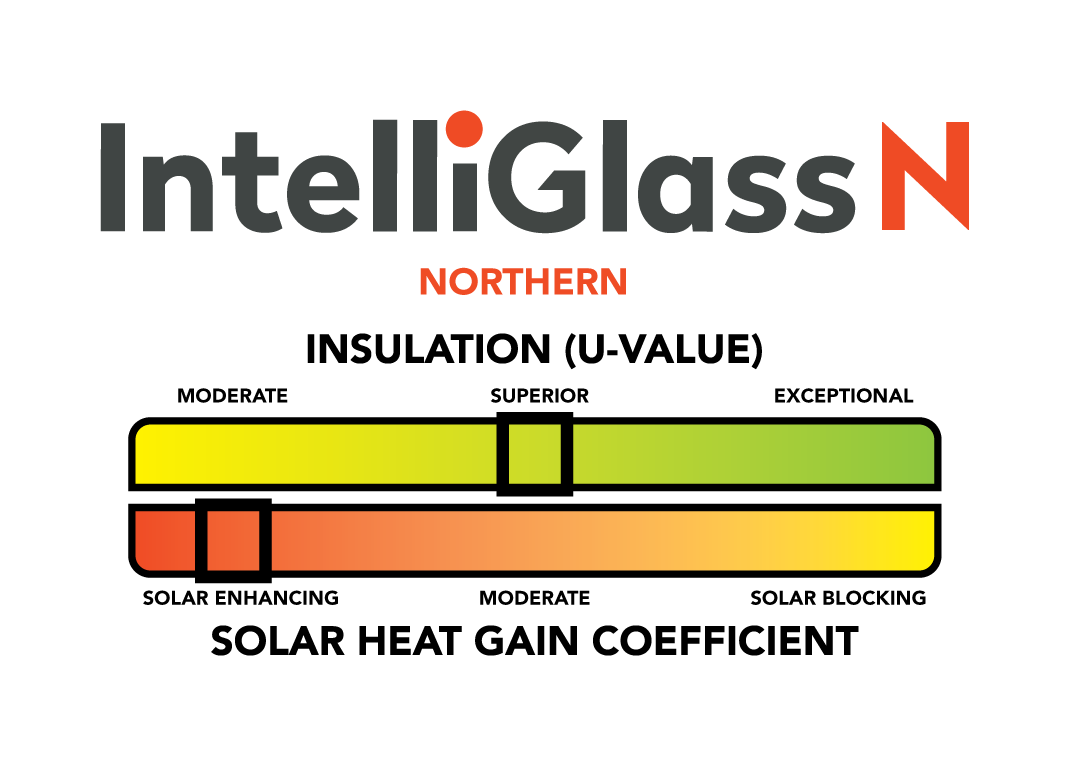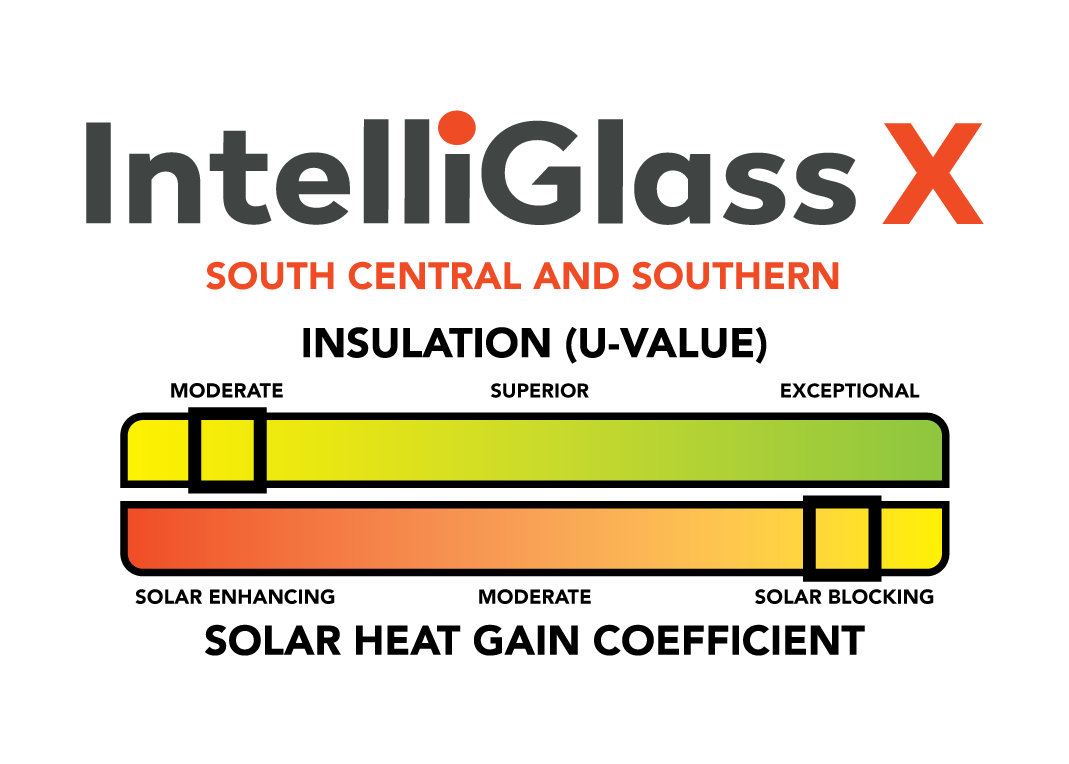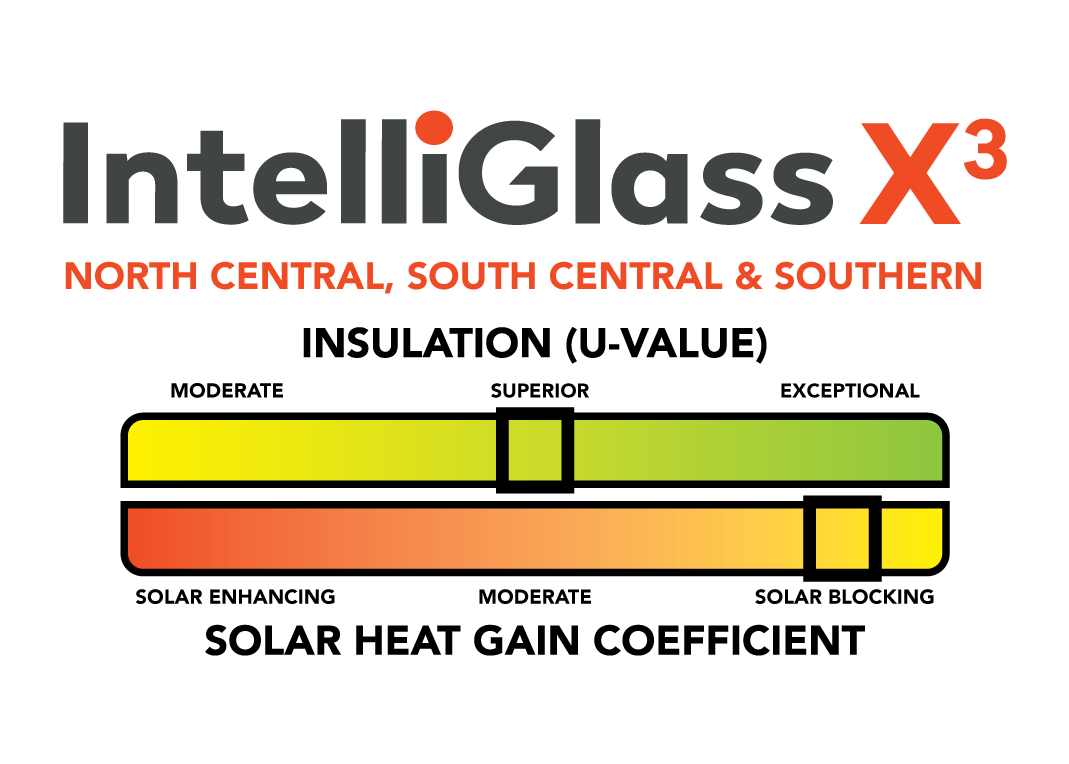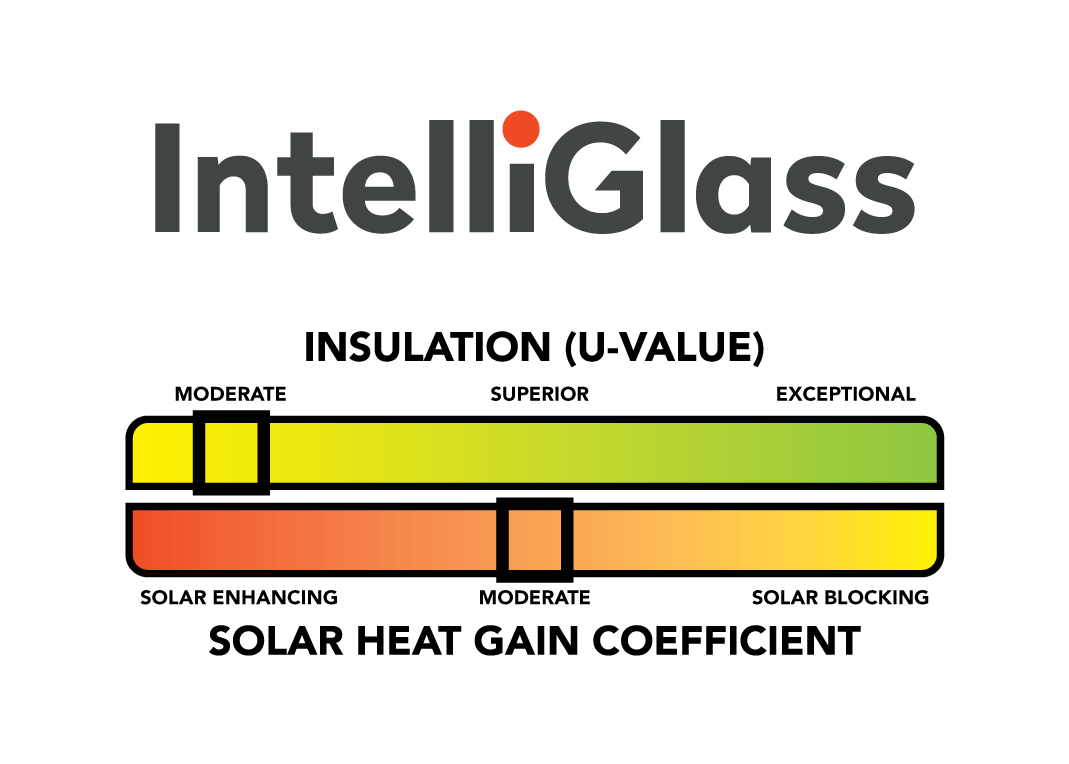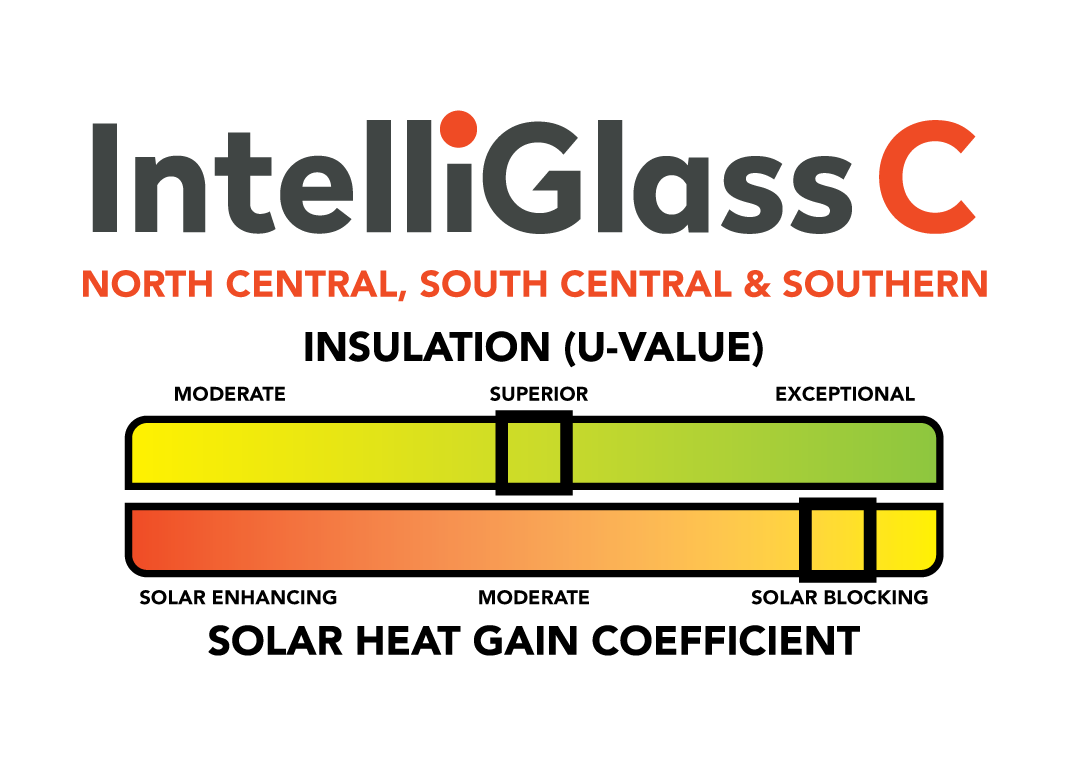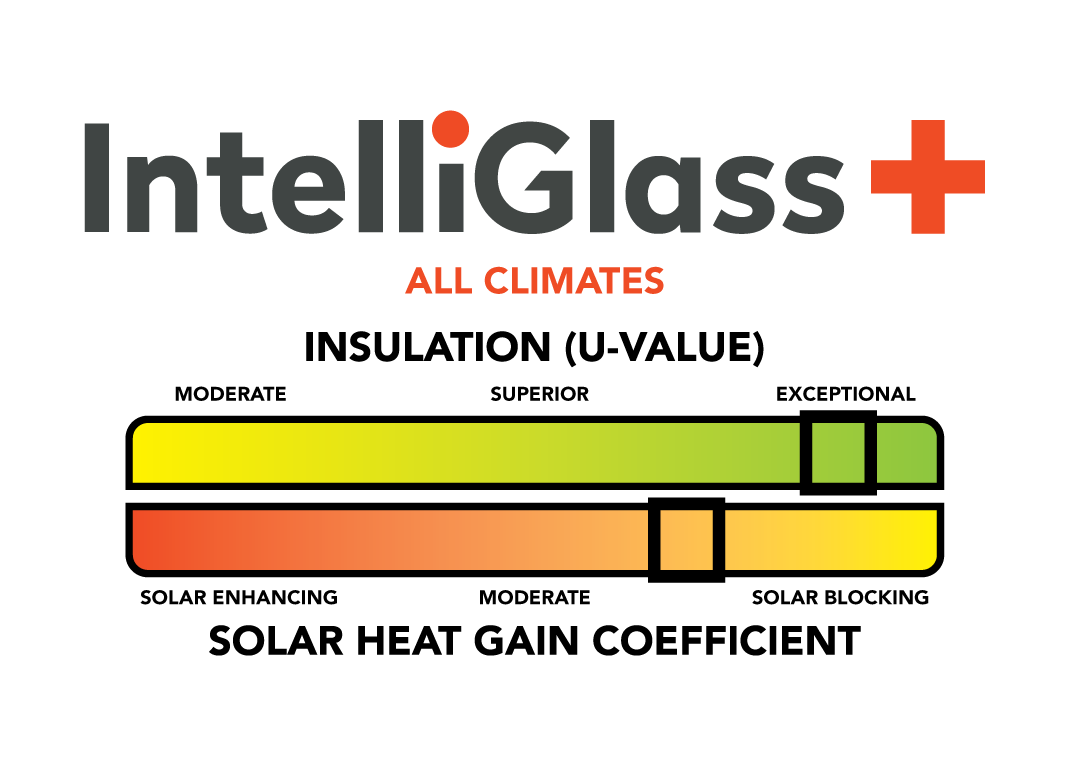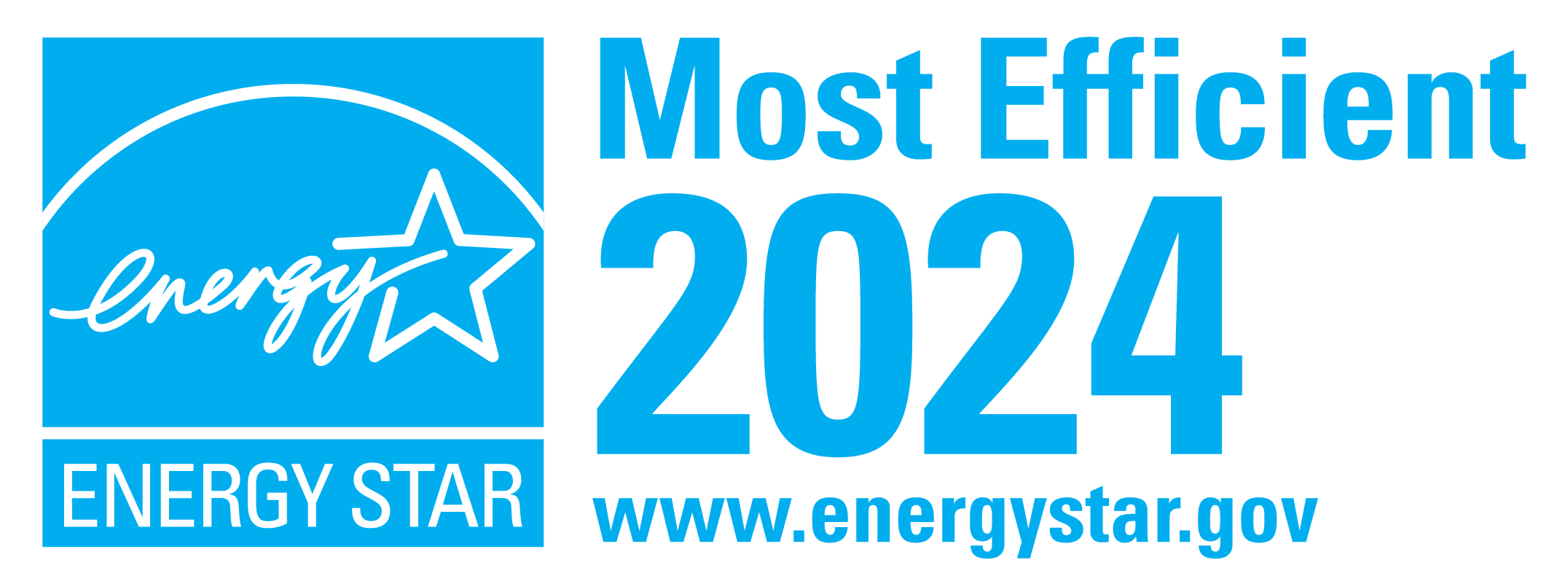IntelliGlass Packages
Low Emissivity (Low-E) glass is one of the cornerstones of any energy efficient window. Its primary purpose is managing radiation, whether it’s solar, light, ultraviolet, or heat. The secret is microscopic layers of silver, which reflect heat back to its source. Other layers in the Low-E coating filter ultraviolet and solar radiation, while allowing visible light through.
Choosing the Right Glass Packages
The needs of every home are different and with our specialized glass packages you can find the perfect fit. We offer both dual and triple pane glass options and can meet the EPA’s stringent ENERGY STAR® 7.0 criteria depending on your geographic location.
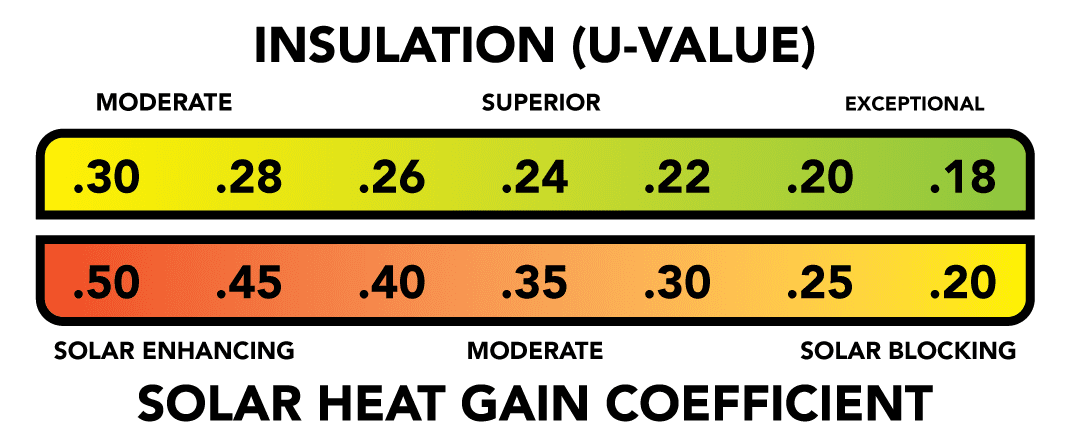
What is Your Climate Zone?
For states with multiple climate zone, select the state from the drop down below to see county specific climate zones.
- Northern
- North-Central
- South-Central
- Southern
Glass recommendations based of the Edison, Choice, Franklin, Radiance Plus, and 4700 Series windows
ENERGY STAR 7.0
Requirements for Windows
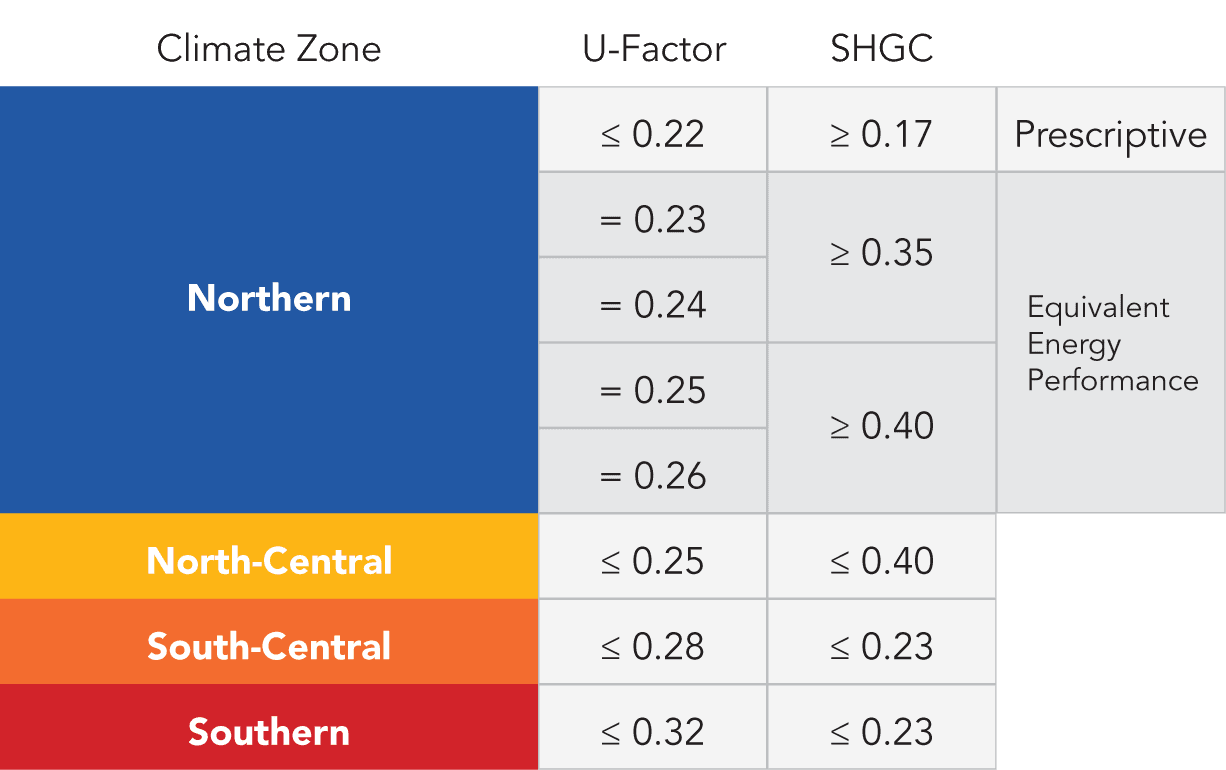
ANNUAL HEATING & COOLING SAVINGS
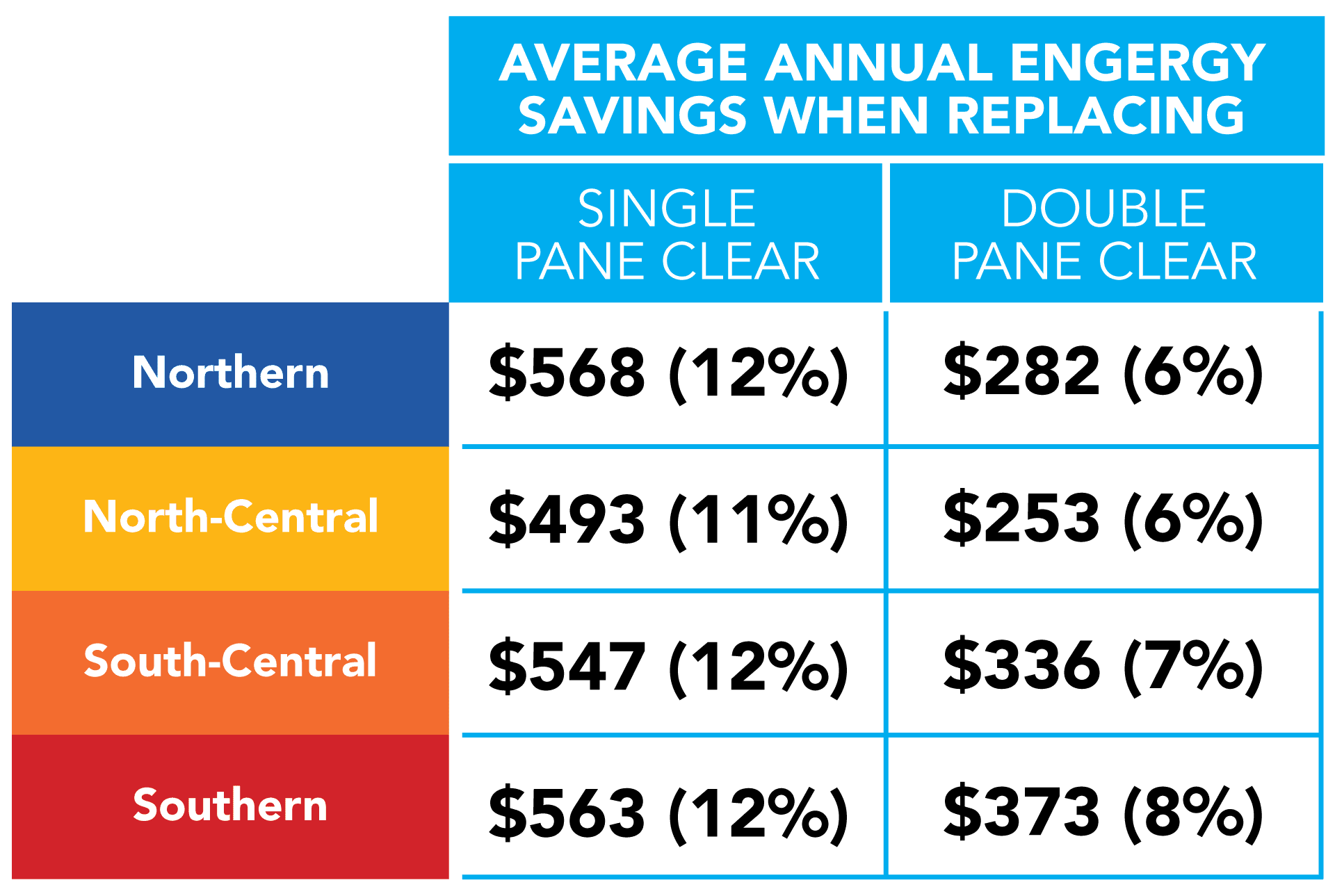
Source 2023: D+R International in support of ENERGY STAR®. Savings estimates are based on EnergyPlus 9.5 modeling for typical homes in 132 U.S. cities. The “typical home” is a 2,376 square foot, two-story, single-family house and is assumed to be a default new construction and existing construction assemblies in each location. The model home was used to create a profile for each city that considers different heating and foundation types using LBNL’s consolidated approaches. The heating approach uses the weighted average of electric resistance. gas furnace, oil furnace, and heat pump systems. The foundation approach uses the weighted average of slab, crawlspace, heated basement, and unheated basement foundation types. Climate zone savings estimates represent the average savings among cities in each climate zone. Each city’s cost savings calculations assume the applicable state’s average natural gas and electricity prices from the Energy Information Administration (EIA). Percentage savings in represent the energy cost savings as a proportion of the average consumer’s annual whole-home utility bill. Actual savings will vary based on local climate conditions, utility rates, and individual home characteristics. Savings for all climate zones are for whole-home replacements with ENERGY STAR® Version 7.o windows.
